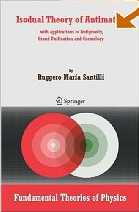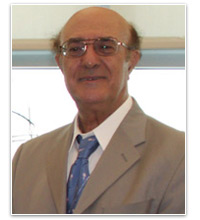Antimatter, already conjectured by A. Schuster in 1898, was actually predicted by P.A.M. Dirac in the late 19-twenties in the negative-energy solutions of the Dirac equation. Its existence was subsequently confirmed via the Wilson chamber and became an established part of theoretical physics.
Dirac soon discovered that particles with negative energy do not behave in a physically conventional manner, and he therefore developed his "hole theory". This restricted the study of antimatter to the sole level of second quantization.
As a result antimatter created a scientific imbalance, because matter was treated at all levels of study, while antimatter was treated only at the level of second quantization.
In search of a new mathematics for the resolution of this imbalance the author conceived what we know today as Santilli?s isodual mathematics, which permitted the construction of isodual classical mechanics, isodual quantization and isodual quantum mechanics.
The scope of this monograph is to show that our classical, quantum and cosmological knowledge of antimatter is at its beginning with much yet to be discovered, and that a commitment to antimatter by experimentalists will be invaluable to antimatter science.



